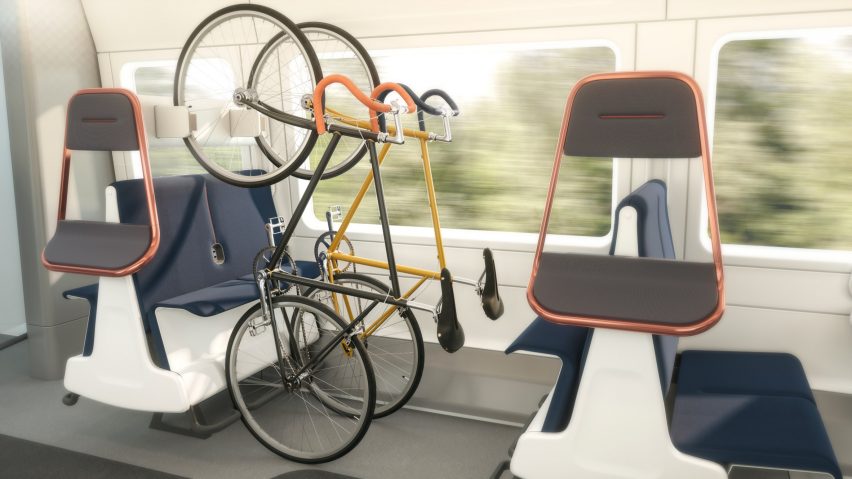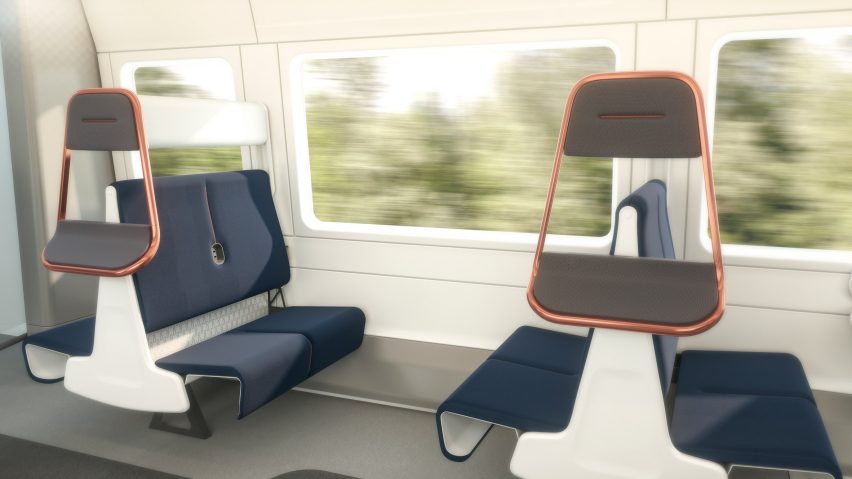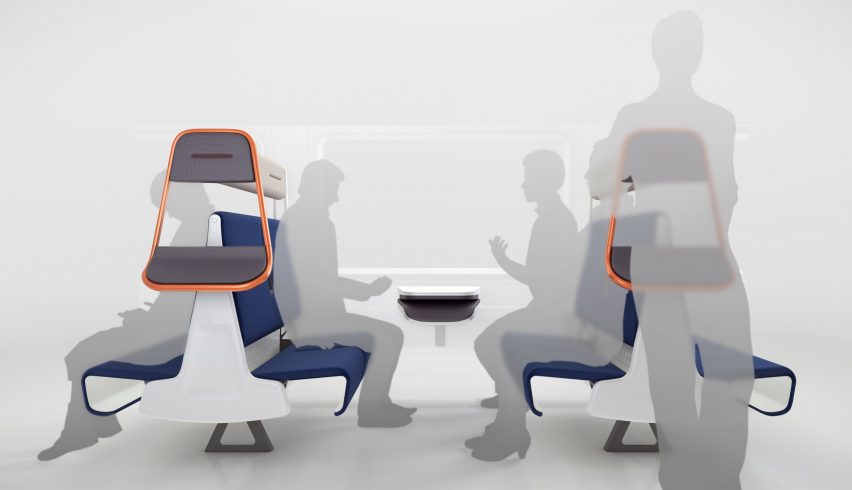
PriestmanGoode proposes expanding bike storage on trains for socially distanced London commutes
Industrial design studio PriestmanGoode has revised its Island Bay train seating to make it easier for London commuters to social distance following the coronavirus pandemic.
PriestmanGoode has adapted its 2016 Island Bay seat design, which was initially designed to increase capacity on trains, to expand on-board bike storage.
Spaces that were designed for extra seating, which would be blocked off due to Covid-19, have been now be used to store passengers' bicycles.
The studio believes this will help enable commuters to complete journeys between their home and workplace at either end on bike. This takes into consideration that, once in London, travellers will aim to avoid other forms of public transportation like buses and tubes.

The interior solution follows announcements made in the UK that rail networks will be re-starting services as lockdown conditions are lifted, but will be reducing capacity onboard down to as little as 10 per cent.
"As transport designers, the 'first and last mile' have always been important considerations for us as our design approach considers the entire customer journey," said PriestmanGoode founder Paul Priestman.
"People typically use their own car, buses or underground services to start and end their journey, but many would prefer to use bikes as a lower-cost and more flexible alternative," he continued.
"We have found a way to adapt our Island Bay seating design so that more bikes can be easily and safely accommodated onboard commuter trains."
As Priestman explains, the Island Bay design was originally part of a brief that was set and funded by the Rail Safety and Standards Board (RSSB), which tasked the company with finding innovative solutions for overcrowding on suburban services.
The original layout offers a conventional, double-seat layout during off-peak times, which can be folded up to increase seating and standing space during peak hours.
"The flexible nature of the design has allowed us to adapt it very quickly to a different set of circumstances and accommodate bikes safely within each carriage as well as restricting seating to enforce social distancing measures," added Priestman.
"By installing flexible seating, train operators are able to adapt to changing customer needs from extra space needed for luggage, bikes or buggies to extra standing space at peak time."

Padded aisle rests are also included in the design for travellers who would alternatively be stood up, unsupported, and twin USB charging ports are integrated into every seat. These elements were also featured in the original design.
"The role of design is to solve problems and improve the overall experience for customers," said Priestman.
"We understand that passengers coming into London are looking to travel at a safe distance during their commute, but the prospect of a crowded bus or underground carriage may put them off making the entire journey."
The new Island Bay seating configuration not only supports the measures that urban planners are making in cities to ease the pressure on public transport systems, but it also aligns with the "healthier choices" that commuters will be making as a consequence of the pandemic, says the designer.
The folding Island Bay seating design was one of two proposed models launched in 2016. The other design, called Horizon, features rows of narrow seats that are closely packed together.
PriestmanGoode are not the only design studio rethinking transport for a post-Covid world. Aviation consultancy Factorydesign has proposed a layout for aircrafts that would support social distancing using screen divider kits.